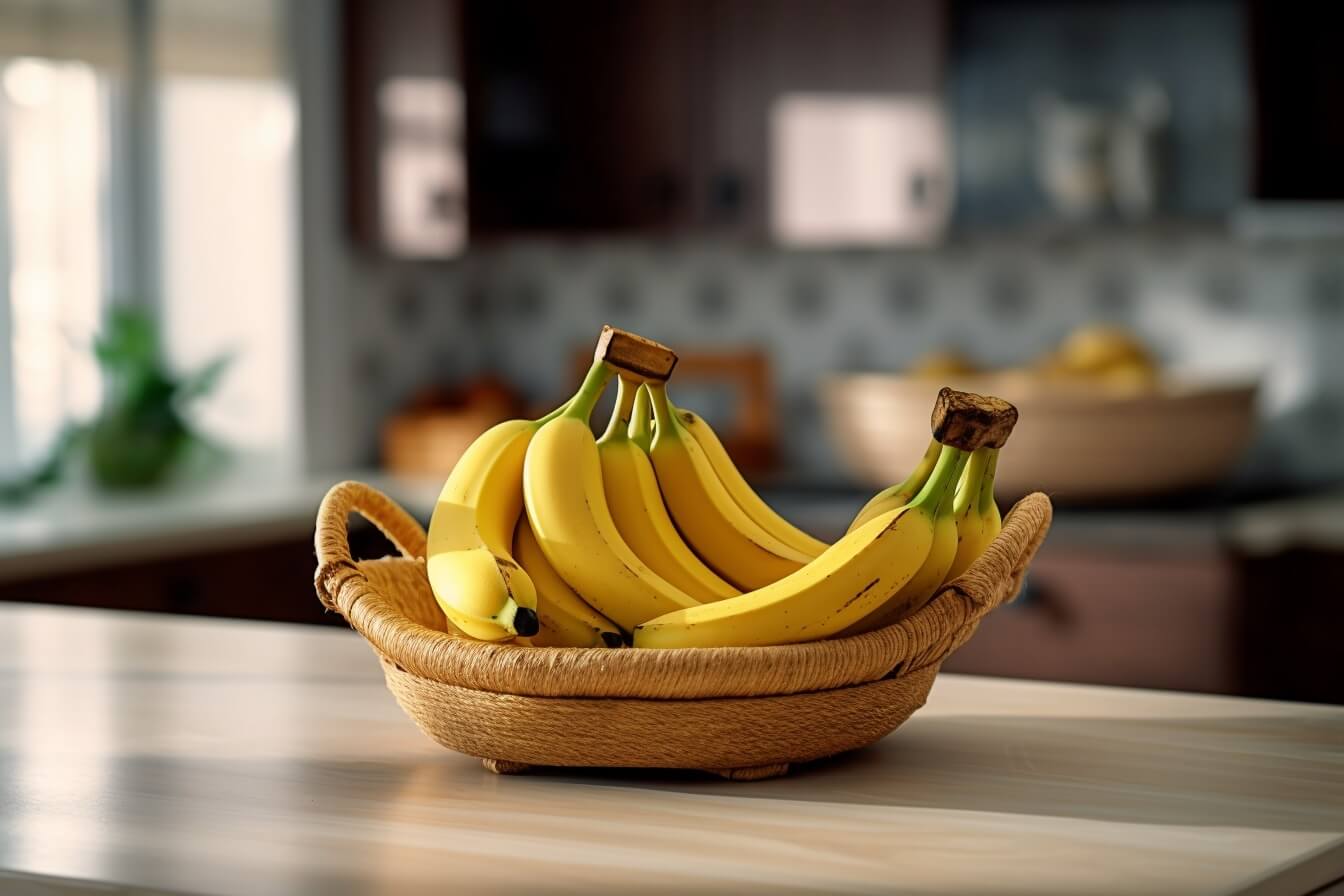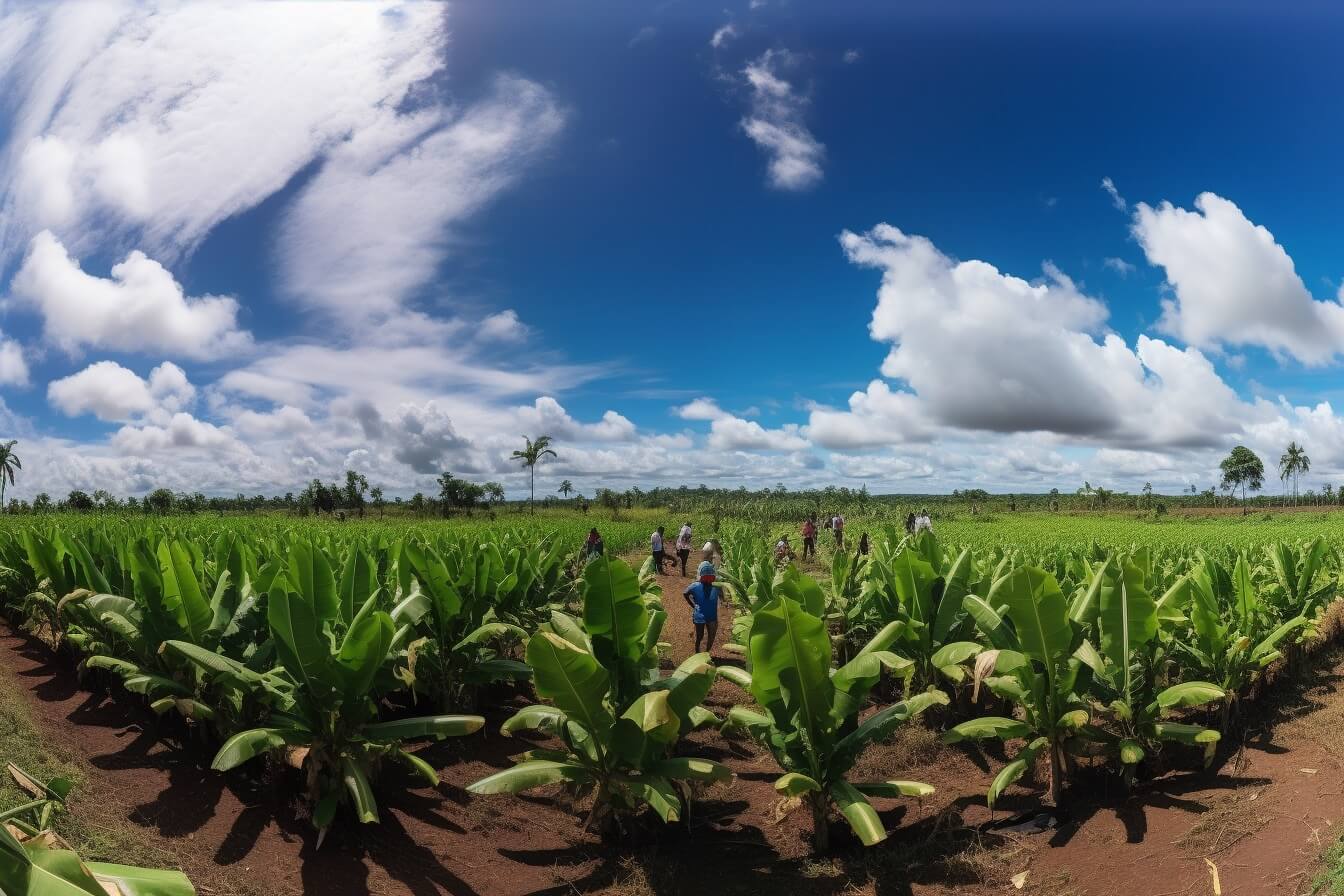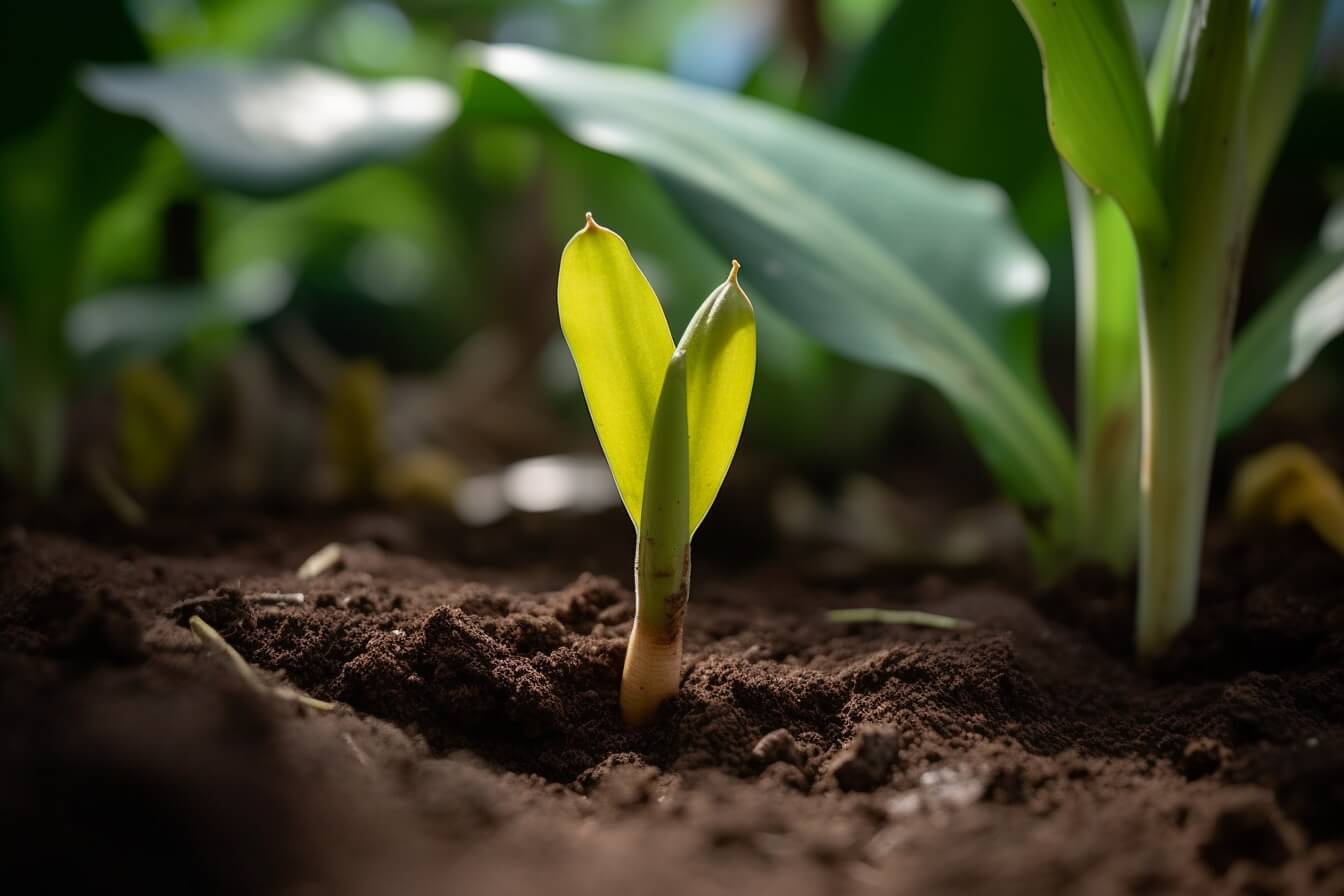Yes, bananas do have seeds. They are small and black and can be found in the center of the fruit.
Bananas, an elongated edible fruit, are produced by herbaceous flowering plants in the genus Musa, making them technically a berry. In terms of anatomy, bananas have three primary parts: the skin or peel, which is rich in fiber and nutrients (Pereira and Maraschin, 2015); the flesh or pulp that we consume; and tiny black seeds inside it.
The Presence Of Tiny Black Seeds
The tiny black seeds in bananas often go unnoticed as they are microscopic and embedded in the fruit’s soft tissue. These little black dots can be found in many different varieties of bananas, but they rarely develop into full-grown plants for commercial cultivars like the popular Cavendish or Gros Michel (Simmonds, 1962).
The reason behind this is that these cultivated bananas have been selectively bred over time to produce fewer and smaller seeds, making them more appealing to consumers.
In contrast, wild bananas such as Musa acuminata and Musa balbisiana found in Southeast Asia possess larger and harder seeds than their commercially grown counterparts (Turner and Polacco, 1981). While still safe for consumption, these bigger seeds contribute to a firmer texture in wild varieties compared to what most people are used to from grocery store bananas.

Do Bananas Grow On Trees?
Bananas do not grow on trees, but rather on a herbaceous flowering plant distantly related to gingers and orchids that can reach up to 30 feet tall and resembles a tree (Robinson, 1996).
Bananas are often thought to grow on trees due to the impressive size of the plants, but in reality, they belong to a different category. The banana plant is actually an herb belonging to the genus Musa.
The unique anatomy of banana plants is what allows them to thrive in tropical regions such as Southeast Asia where warmth and humidity provide ideal growing conditions.
These massive herbs produce large clusters of bananas on long stalks originating from an inflorescence formed at the top of the pseudostem.

Comparison Of Seeded And Seedless Bananas
Commercially grown dessert bananas are typically seedless varieties, while wild species and plantains still have seeds.
1. Commercial Cultivars
Commercial banana cultivars, such as the popular Cavendish banana, dominate grocery stores worldwide. These seedless varieties are a result of centuries of selective breeding to develop edible fruit with fewer seeds and more flesh.
The focus on producing larger quantities of commercial cultivars has led to a decline in genetic diversity among these fruits. However, there are still many lesser-known and underrated cultivars available – like Musa acuminata and Musa balbisiana – that have unique flavors but aren’t as shelf-stable or transportable as those found in most stores (Ploetz et al., 2007).
2. Wild Bananas
Wild bananas, also known as diploid bananas, are the ancestors of our beloved dessert bananas. Wild banana trees have large seeds that are surrounded by a thick seed coat.
This makes them nearly impossible to eat because the seeds take up most of the fruit’s flesh. However, these wild species are still vital to researchers studying breeding practices for dessert bananas (Simmonds and Shepherd, 1955).
3. Plantains
Plantains are a type of banana that is commonly grown and consumed in tropical regions around the world. Unlike most sweet dessert bananas, plantains have seeds within their fruit, which can be used for propagation.
They are often cooked before consumption and used in a variety of dishes ranging from savory to sweet. Plantains are a great source of complex carbohydrates and contain high levels of vitamins A and C, as well as potassium, according to USDA FoodData Central.
Growing Bananas From Seeds
From my experience, germinating banana seeds is a tricky process that requires patience and attention to detail.
In order to germinate banana seeds, they need moisture and warmth. One way to sprout banana seeds is by placing them on a damp paper towel in a plastic bag.
- To begin, the seeds should be removed from a ripe fruit and washed thoroughly with water to remove any excess pulp or debris.
- Then, they can be placed on a damp paper towel and covered with another damp towel before being sealed in an airtight plastic bag.
- Keep the bag open slightly so that air can circulate inside but not too much as it needs some humidity for growth.
It’s important to note that banana seeds are slow to germinate and may take several weeks or even months before sprouting. During this time, the paper towels should be checked regularly for moisture levels, ensuring they remain damp but not soaking wet.
Bananas are tropical plants and thrive in warm, humid conditions. According to The Royal Horticultural Society, they require a temperature between 60 to 81 degrees Fahrenheit (15 to 27 degrees Celcius) and plenty of sunshine for good growth.

FAQs
1. Do Red Bananas Have Seeds?
Yes, red bananas, specifically the Musa Velutina variety, do have seeds. The fruit is edible, but the numerous large and small seeds make consumption virtually impossible. The seeds are not edible, which is why the fruit is primarily grown for its ornamental value rather than for consumption.
2. Do Burro Bananas Have Seeds?
Yes, burro bananas do have seeds. They are dark and very small, about the size of a quinoa grain. The seeds are edible and are spread along the center stretch of the core of the white flesh.
3. Are Bananas Allowed Before A Colonoscopy?
Yes, bananas are allowed before a colonoscopy. They are part of the recommended diet prior to the procedure. However, it’s important to note that these recommendations are likely based on common foods found in supermarkets. Therefore, it’s best to avoid eating seeded banana varieties before your colonoscopy.
